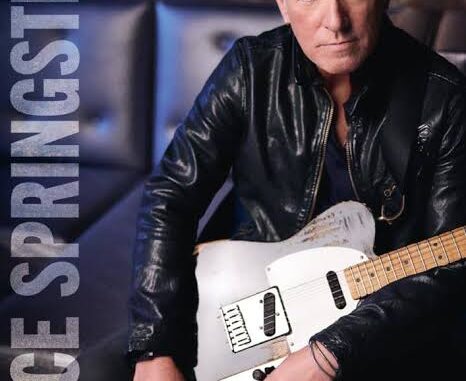
Bruce Springsteen, often hailed as the voice of the American working class, has never shied away from political expression. From the Vietnam War era to post-9/11 America, his songs have consistently carried a conscience. Now, with the 2026 election looming and national tensions rising, Springsteen is stepping further into the arena with a bold new initiative: the American Mercy campaign. This movement, as he describes it, is not just a political statement—it’s a cultural reckoning aimed at defending compassion, dignity, and democratic values in the face of a political climate he views as dangerously regressive.
The American Mercy campaign emerged following a series of small, private performances Springsteen held in early 2025 for community organizers, veterans, and immigrants. These intimate shows were not just concerts—they were conversations. He spoke openly about what he calls “the soul of the country” being at stake, repeatedly criticizing the resurgence of political ideologies that prioritize power over people. Behind the scenes, his team was already forming a plan to turn these values into action.
Officially launched in June 2025, American Mercy is a grassroots, music-driven advocacy campaign focused on voter education, civic engagement, and policy awareness. It partners with local organizations across all 50 states, offering financial support, mobilizing volunteers, and—most notably—staging a cross-country series of free concerts in historically disenfranchised communities. Springsteen himself is headlining many of these shows, joined by a rotating cast of fellow musicians and activists.
But beyond the stage, American Mercy carries a clear political edge. Its mission statement directly calls out the “rise of authoritarian sentiment” and the “rhetoric of division” that has characterized Donald Trump’s return to the political forefront. While Springsteen does not frame the campaign as an official endorsement of any specific candidate, he leaves no doubt about who and what he opposes. At a press event in Detroit, he said bluntly, “We can’t afford four more years of cruelty masquerading as leadership.”
Springsteen’s relationship with American politics has always been complex—never partisan, but profoundly moral. His disdain for Trump dates back to the 2016 campaign, when he criticized the former president’s tone, policies, and character. What’s changed now is the level of urgency in his activism. With American Mercy, he has taken his dissent beyond his lyrics and into the structure of organized resistance, combining music with meaningful social engagement.
One of the campaign’s most notable aspects is its collaboration with youth leaders. Springsteen has made it clear that this movement is not about him—it’s about empowering the next generation. Through a series of mentorship workshops, he’s brought together young activists, educators, and artists to help craft messaging that resonates with broader, more diverse audiences. He believes change must come from the bottom up, and American Mercy is designed as a vehicle for that kind of transformation.
Critics have accused Springsteen of using his fame to push a political agenda, but he’s unfazed by such attacks. In fact, he has addressed them directly. “If being compassionate, if caring about immigrants and the poor and the working man is a political stance, then yeah—I’m political,” he said during a recent appearance on NPR. For Springsteen, silence in the face of what he sees as injustice is a betrayal of the American spirit he’s spent decades singing about.
The campaign has already gained significant traction. Within weeks of its launch, American Mercy registered tens of thousands of new voters, distributed educational resources in over 200 school districts, and helped fund legal support for migrants and refugees. Artists from every genre—folk, hip-hop, country, punk—have joined the initiative, performing at benefit shows and amplifying its message on social media.
In addition to community engagement, American Mercy includes a multimedia storytelling platform. It features mini-documentaries, podcasts, and written essays from Americans affected by policies they believe were harmful during Trump’s previous administration. The stories range from veterans struggling with healthcare access to young LGBTQ+ individuals fighting for their rights in conservative states. Springsteen narrates several of these stories himself, using his voice to connect personal pain with national urgency.
Despite the political weight of the campaign, Springsteen insists American Mercy is also a celebration of what makes America worth fighting for: freedom, diversity, and resilience. At each concert, he ends the night with “The Rising,” a song originally inspired by 9/11, now repurposed as a call to unity and hope. The crowd sings with him—not just fans, but citizens galvanized into action.
As the 2026 election draws near, Springsteen shows no signs of slowing down. More events are planned, more voices will be amplified, and more resources will be funneled into communities that are too often overlooked. What began as a musician’s plea for decency has grown into a movement rooted in empathy and resistance. And in a country still grappling with its identity, American Mercy may become one of its most compelling answers.
Bruce Springsteen has always believed in the power of storytelling to drive change. With American Mercy, he’s writing a new chapter—one not just of protest, but of promise. As the battle for America’s future intensifies, The Boss is making it clear: this fight is personal. And he’s not backing down.

Leave a Reply